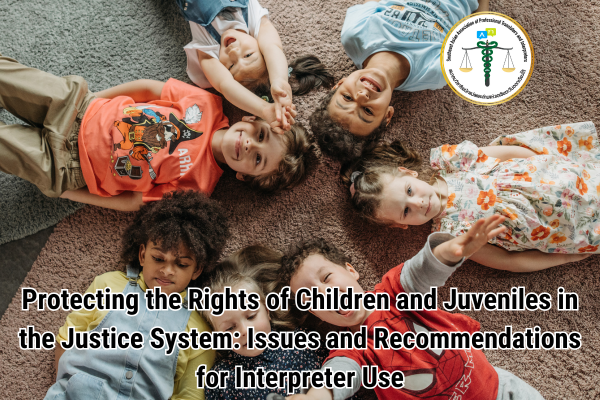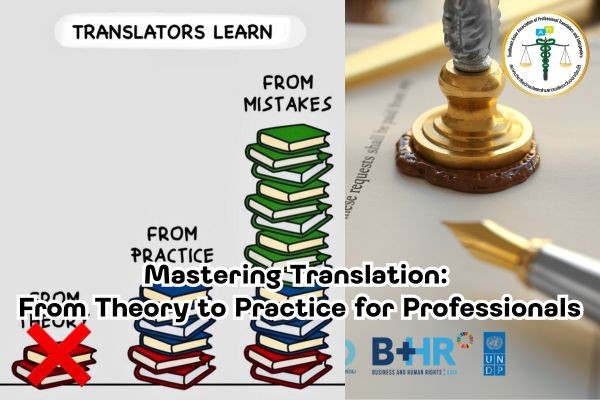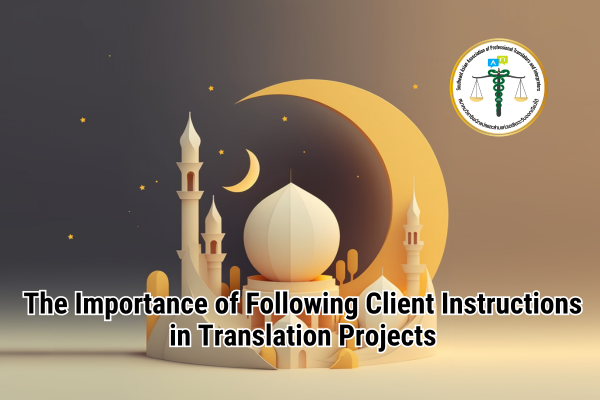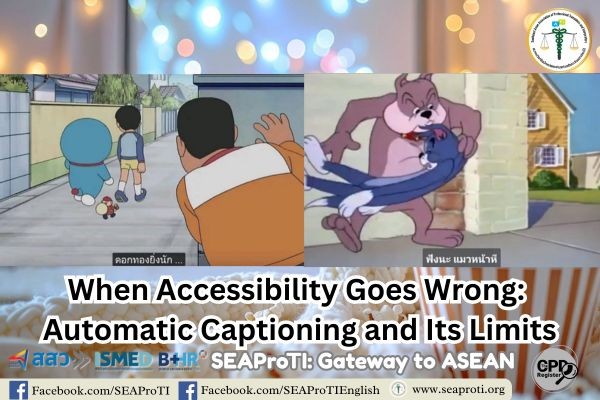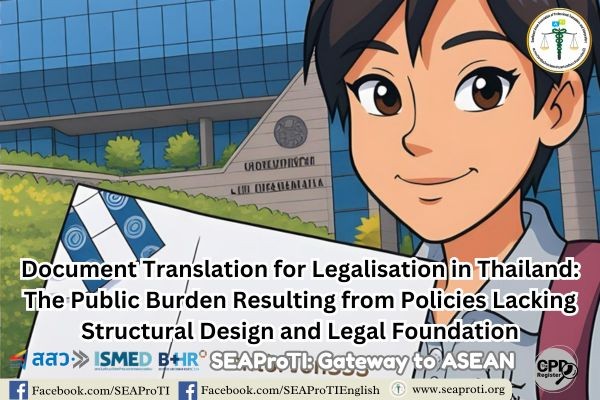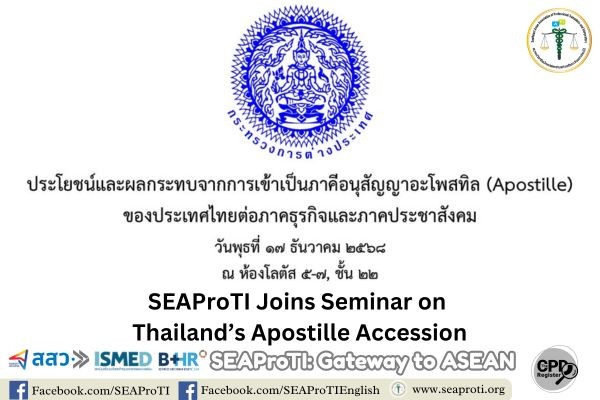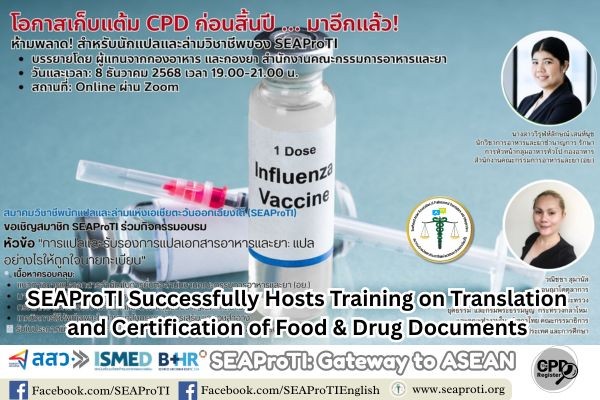Protecting the Rights of Children and Juveniles in the Justice System:
Issues and Recommendations for Interpreter Use
26 January 2028, Bangkok – Thailand’s criminal justice system mandates the use of the Thai language in legal proceedings. However, when defendants, especially children and juveniles, cannot speak or understand Thai, their constitutional rights may be compromised. The right to an interpreter is a critical safeguard, but legal improvements are necessary to enhance the protection of children and juveniles accused of crimes.
Section 1: Current Issues with Interpreter Use in Thailand
1.1 Right to an Interpreter under Thai Law
Section 13 of the Criminal Procedure Code guarantees the right to an interpreter but does not specify the qualifications required.
The Juvenile and Family Court and Juvenile and Family Case Procedure Act, B.E. 2553 (2010), provides this right only during police investigations, while courtroom proceedings rely on Section 13 without additional measures tailored for children and juveniles.
1.2 Limitations in Thai Law
- No clear qualifications for interpreters, such as language skills, legal knowledge, or training.
- Lack of a registration system or oversight mechanism for interpreters.
- Inconsistent standards between police investigations and courtroom proceedings.
Section 2: Comparison with International Practices
2.1 United States (California)
Courts are required to appoint interpreters who meet specific qualifications set by relevant regulatory bodies.
2.2 Australia
The right to an interpreter depends on judicial discretion. If the court determines that a child or juvenile cannot understand English, an interpreter must be appointed. These interpreters must adhere to strict ethical and professional standards.
2.3 Lessons from Abroad
Both countries emphasize clear qualification requirements for interpreters, enhancing the protection of defendants’ rights. This contrasts with Thailand, where such standards remain undefined.
Section 3: Recommendations for Improving Thai Law
3.1 Legal Amendments
- Extend the right to an interpreter to all stages of legal proceedings, including courtroom trials.
- Specify qualifications for interpreters, such as language expertise, legal training, and psychological knowledge.
3.2 Establish a Responsible Agency
- Create a dedicated body to oversee interpreter training, testing, and registration, such as the Office of Foreign Affairs under the Court of Justice.
3.3 Implement a Registration System
- Develop a registration system for certified interpreters.
- Introduce monitoring and disciplinary measures for interpreters who fail to uphold standards.
3.4 Unified Standards in the Justice Process
- Harmonize interpreter standards across all stages of the justice process to ensure fairness.
Conclusion
The rights of children and juveniles in the justice system are fundamental and deserve robust protection. Revising laws to define interpreter qualifications and establishing a standardized system will ensure fair treatment and enhance confidence in Thailand’s justice system, aligning it with international standards.
SEAProTI’s certified translators, translation certification providers, and certified interpreters:
The Southeast Asian Association of Professional Translators and Interpreters (SEAProTI) has officially announced the criteria and qualifications for individuals to register as “Certified Translators,” “Translation Certification Providers,” and “Certified Interpreters” under the association’s regulations. These guidelines are detailed in Sections 9 and 10 of the Royal Thai Government Gazette, issued by the Secretariat of the Cabinet under the Office of the Prime Minister of the Kingdom of Thailand, dated July 25, 2024, Volume 141, Part 66 Ng, Page 100.
To read the full publication, visit: the Royal Thai Government Gazette
การคุ้มครองสิทธิเด็กและเยาวชนในกระบวนการยุติธรรม:
ปัญหาและข้อเสนอในการปรับปรุงการใช้ล่าม
26 มกราคม 2568, กรุงเทพมหานคร – กระบวนการยุติธรรมทางอาญาของประเทศไทยกำหนดให้ใช้ภาษาไทยในการดำเนินการตามกฎหมาย แต่เมื่อผู้ต้องหาโดยเฉพาะเด็กและเยาวชนไม่สามารถพูดหรือเข้าใจภาษาไทย การปกป้องสิทธิตามรัฐธรรมนูญอาจไม่บรรลุผลสำเร็จ ดังนั้น การมีล่ามจึงเป็นสิทธิสำคัญที่ต้องมีการปรับปรุงกฎหมายเพื่อเพิ่มประสิทธิภาพในการคุ้มครองเด็กและเยาวชนในฐานะผู้ถูกกล่าวหา
หัวข้อ 1: ปัญหาปัจจุบันของการใช้ล่ามในประเทศไทย
1.1 สิทธิในการมีล่ามตามกฎหมายไทย
มาตรา 13 แห่งประมวลกฎหมายวิธีพิจารณาความอาญา ระบุถึงสิทธิของผู้ต้องหาในการมีล่าม แต่ไม่มีการกำหนดคุณสมบัติของล่ามอย่างชัดเจน
พระราชบัญญัติศาลเยาวชนและครอบครัว พ.ศ. 2553 ระบุสิทธิในการมีล่ามเฉพาะในขั้นตอนการสอบสวนโดยเจ้าพนักงานตำรวจเท่านั้น ในชั้นศาลต้องพึ่งพามาตรา 13 โดยไม่มีการเพิ่มข้อกำหนดพิเศษสำหรับเด็กและเยาวชน
1.2 ข้อจำกัดในกฎหมายไทย
- ไม่มีการกำหนดมาตรฐานคุณสมบัติของล่าม เช่น ทักษะด้านภาษา ความรู้กฎหมาย หรือการฝึกอบรม
- ไม่มีระบบควบคุมหรือการลงทะเบียนล่าม
- มาตรฐานในขั้นตอนเจ้าพนักงานและในศาลยังไม่สอดคล้องกัน
หัวข้อ 2: การเปรียบเทียบกับกฎหมายต่างประเทศ
2.1 สหรัฐอเมริกา (มลรัฐแคลิฟอร์เนีย)
ศาลมีหน้าที่แต่งตั้งล่ามที่มีคุณสมบัติตามข้อกำหนดอย่างชัดเจน เช่น การผ่านการรับรองจากคณะกรรมการที่เกี่ยวข้อง
2.2 ออสเตรเลีย
สิทธิในการมีล่ามขึ้นอยู่กับดุลยพินิจของผู้พิพากษา โดยศาลจะจัดหาล่ามให้หากพิจารณาแล้วว่าเด็กและเยาวชนไม่สามารถเข้าใจภาษาอังกฤษ ล่ามจะต้องมีคุณสมบัติตามจรรยาบรรณที่ชัดเจน
2.3 บทเรียนจากต่างประเทศ
ทั้งสองประเทศมีการกำหนดมาตรฐานคุณสมบัติของล่ามที่ช่วยเพิ่มประสิทธิภาพในการคุ้มครองสิทธิของผู้ต้องหา ซึ่งแตกต่างจากกฎหมายไทยที่ยังไม่มีมาตรฐานที่ชัดเจนในเรื่องนี้
หัวข้อ 3: ข้อเสนอในการปรับปรุงกฎหมายไทย
3.1 การปรับปรุงบทบัญญัติกฎหมาย
- เพิ่มสิทธิในการมีล่ามในทุกขั้นตอน รวมถึงในชั้นศาล
- ระบุคุณสมบัติของล่าม เช่น ความเชี่ยวชาญด้านภาษา การฝึกอบรมในด้านกฎหมาย และจิตวิทยา
3.2 การจัดตั้งหน่วยงานรับผิดชอบ
- จัดตั้งหน่วยงานเฉพาะเพื่อรับผิดชอบการฝึกอบรม ทดสอบ และขึ้นทะเบียนล่าม เช่น กองการต่างประเทศ สำนักงานศาลยุติธรรม
3.3 ระบบทะเบียนล่าม
- สร้างระบบลงทะเบียนล่ามที่ผ่านการรับรองมาตรฐาน
- มีมาตรการตรวจสอบและบทลงโทษกรณีล่ามประพฤติผิด
3.4 การสร้างมาตรฐานเดียวกันในกระบวนการยุติธรรม
- บูรณาการมาตรฐานล่ามในทุกขั้นตอนของกระบวนการยุติธรรมเพื่อความเป็นธรรม
บทสรุป
สิทธิของเด็กและเยาวชนในกระบวนการยุติธรรมคือสิทธิขั้นพื้นฐานที่ต้องได้รับการคุ้มครองอย่างเหมาะสม การปรับปรุงกฎหมายเกี่ยวกับล่าม รวมถึงการกำหนดคุณสมบัติและมาตรฐานอย่างชัดเจน จะช่วยให้เด็กและเยาวชนได้รับการปฏิบัติอย่างเป็นธรรม และเพิ่มความเชื่อมั่นในระบบยุติธรรมของประเทศไทยให้สอดคล้องกับมาตรฐานสากล
เกี่ยวกับนักแปลรับรอง ผู้รับรองการแปล และล่ามรับรองของสมาคมวิชาชีพนักแปลและล่ามแห่งเอเชียตะวันออกเฉียงใต้
สมาคมวิชาชีพนักแปลและล่ามแห่งเอเชียตะวันออกเฉียงใต้ (SEAProTI) ได้ประกาศหลักเกณฑ์และคุณสมบัติผู้ที่ขึ้นทะเบียนเป็น “นักแปลรับรอง (Certified Translators) และผู้รับรองการแปล (Translation Certification Providers) และล่ามรับรอง (Certified Interpreters)” ของสมาคม หมวดที่ 9 และหมวดที่ 10 ในราชกิจจานุเบกษา ของสำนักเลขาธิการคณะรัฐมนตรี ในสำนักนายกรัฐมนตรี แห่งราชอาณาจักรไทย ลงวันที่ 25 ก.ค. 2567 เล่มที่ 141 ตอนที่ 66 ง หน้า 100 อ่านฉบับเต็มได้ที่: นักแปลรับรอง ผู้รับรองการแปล และล่ามรับรอง


